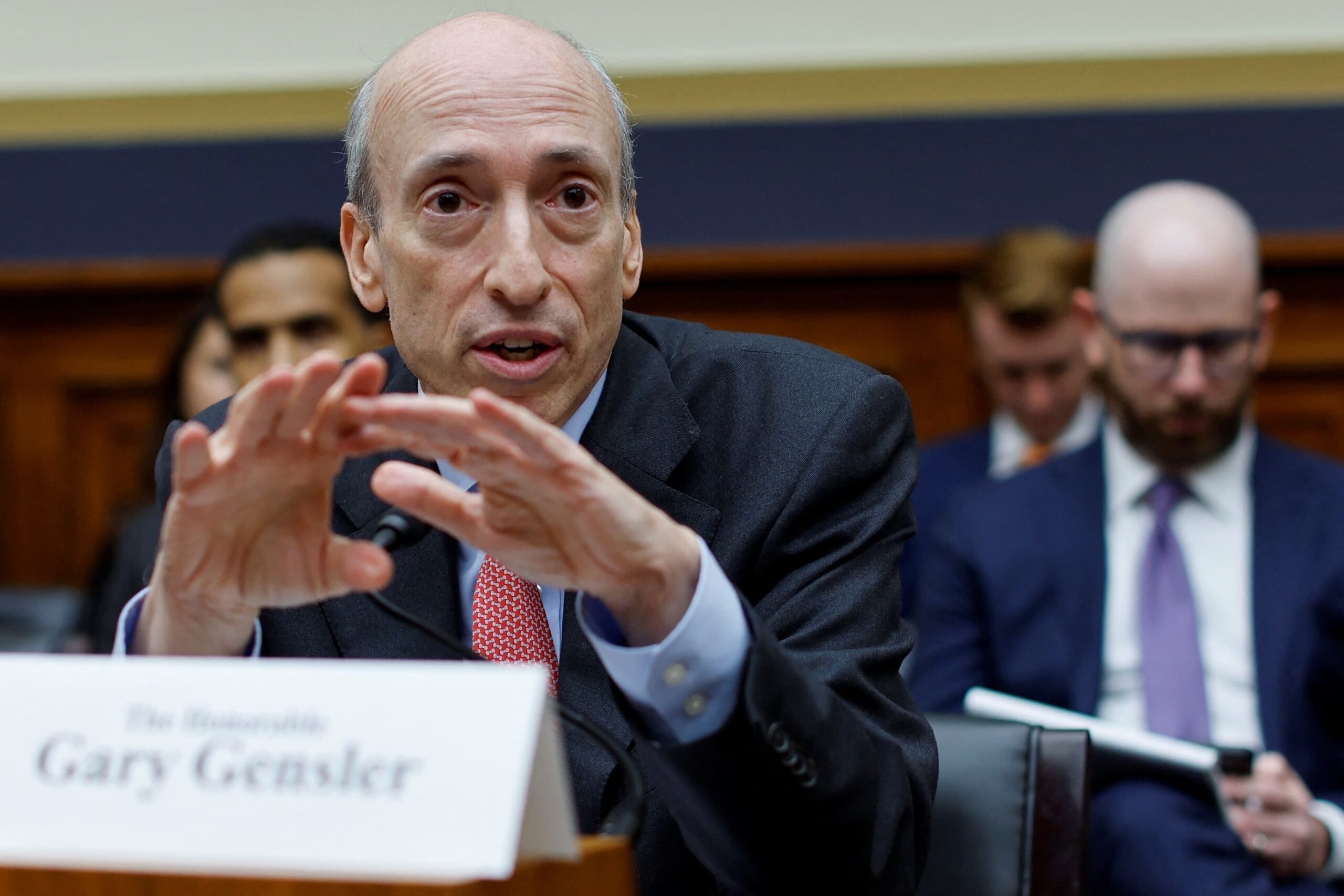
Nov. 14—The Biden administration on Wednesday endorsed a land exchange that would allow a controversial gravel road to be built through the Izembek National Wildlife Refuge in Southwest Alaska.
The Biden administration won’t make the final call on the road, which would travel about 16 miles through the refuge. That decision will fall to the incoming administration of President-elect Donald Trump. But support for the potential road is a first for a Democratic administration, officials said.
The road has long been sought by Alaska’s elected leaders and the village of King Cove, a community of 900 where residents want to improve access to medical care by linking to a jet-accessible runway in Cold Bay. Advocates generally cheered the move.
Advertisement
Advertisement
Conservation and some tribes in Alaska swiftly denounced the proposal. They have strenuously fought the road, including in court, citing issues that include the value of the 310,000-acre refuge to migrating waterfowl and other wildlife.
The U.S. Fish and Wildlife Service on Wednesday released a draft environmental review of the proposed land exchange with the King Cove Corp., the village’s Alaska Native corporation.
The agency prefers the land exchange over other options such as taking no action, or allowing a ferry or hovercraft to provide access, according to an executive summary of the report.
Under the preferred land swap, 484 acres of federal land would go to King Cove Corp. The federal government would gain 31,000 acres, with 1,700 of those acres falling under Wilderness status with increased protections.
Advertisement
Advertisement
The single-lane road would extend 19 miles, with 16 miles located in the refuge, according to the executive summary. The road would not be available for commercial use. About 13 miles of the road would be built on land with no previous road.
Chantae Kochuten, the chief executive of the village corporation, said Wednesday evening she hadn’t yet read the entire document.
“We will be reviewing it as soon as possible, but right now we don’t have a comment,” she said of the village corporation.
Gary Hennigh, the longtime city manager for King Cove, said that based on initial reactions, people in the village on Wednesday are happy to see the proposed road moving forward.
Advertisement
Advertisement
More in U.S.
“The idea of being able to safely get out of King Cove is very, very good news,” he said. “We haven’t had time yet to read the (full report), but we certainly have been involved in the process leading up to the decision that was announced today.”
The release of the document opens a 45-day public comment period starting Friday.
Sen. Lisa Murkowski, R-Alaska, said she supports the proposed land swap as a way to finally allow the road to be built through the refuge.
“We have been trying for 30-plus years to get this life-saving, one-lane, non-commercial gravel road to just allow for limited access for the people,” she said.
Advertisement
Advertisement
in 2019, the Trump administration had approved a land swap with the King Cove corporation to allow the road.
But Interior Secretary Deb Haaland last year withdrew that deal, identifying shortcomings with its environmental analysis including over subsistence impacts and environmental laws, as well as “the nonpublic manner” in which the exchange was accomplished, Fish and Wildlife said in its statement.
Unlike the exchange proposed under Trump, the new draft environmental review clarifies that promoting economic development does not provide legal support for the exchange, Fish and Wildlife said.
“Any land exchange must advance the conservation purposes of the wildlife refuge system in Alaska, while protecting subsistence uses and habitat,” the agency said.
Advertisement
Advertisement
The increased land for the refuge supports those goals, the agency said.
Murkowski said the deal isn’t perfect. The best deal would be a land swap of equal acreage, she said.
“The problem is that any other deal that has been out there did not materialize,” she said.
Until now, Democratic administrations dating back to former President Bill Clinton have rejected the road, she said.
And while the Trump administration moved the ball forward further than other administrations, that also has not held up, she said.
Sen. Dan Sullivan, R-Alaska, said he’s still reviewing the details.
But he said while the Trump administration had resolved the issue in a fair way, Haaland “heartlessly killed that solution.”
Advertisement
Advertisement
“Now, after nearly four years — and the loss of at least one life — the community’s health and safety is being leveraged at an outrageous price: 31,000 acres in exchange for 500 acres,” he said in an email from his office.
“While I’m relieved that this life-saving road might be built, Alaska Native lives should never be leveraged, especially by their own federal government, “he said. “The people of King Cove deserve much better.”
The office of Rep. Mary Peltola, a Democrat, did not immediately respond to a request for comment Wednesday afternoon.
Haaland’s decision last year to withdraw the Trump-era land swap came after she had traveled to King Cove to hear from the community about the safety issues in the village. The withdrawal led to the latest draft environmental review of the land exchange.
Advertisement
Advertisement
Haaland said at the time of the withdrawal that she was a “lifelong conservationist.”
But she added that “Respecting tribal sovereignty means ensuring that we are listening — really listening — to tribal communities.”
Haaland’s office did not respond to a request for an interview with her. A spokeswoman said the agency could not provide more details beyond the announcement. Haaland’s social media accounts on Wednesday provided no updates about the potential land exchange.
Defenders of Wildlife said in a statement on Wednesday the land swap would undermine the purposes of the refuge and the Alaska National Interest Lands Conservation Act that officially designated the area as a wildlife refuge, over its previous category as a wildlife range.
Advertisement
Advertisement
The refuge’s eelgrass beds are among the world’s largest, and it’s home to nearly the entire global population of Pacific Brant and emperor geese, among other animals, the group said. The group said a marine ferry alternative in 2015 was determined to be 99.9% dependable by the U.S. Army Corps of Engineers.
“The Secretary of the Interior does not have the authority to conduct this land exchange,” said Nicole Whittington-Evans, Defenders of Wildlife Alaska program director. “Any exchange of Izembek Refuge wilderness lands to allow a road would harm this world-class wetland and sets a dangerous precedent allowing future secretaries to trade away prized Alaska public lands to private parties for their gain.”
The Native Village of Hooper Bay, its village corporation, and other tribal entities from the Yukon-Kuskokwim Delta region and other parts of the state oppose the land swap, according to a statement from Earthjustice.
Residents in the Southwest Alaska region hunt migratory birds such as the Pacific black brant and emperor geese that stop to feed on eelgrass beds in Izembek before reaching their summer nesting grounds in the delta, the statement said.
Advertisement
Advertisement
A previous Fish and Wildlife environmental study concluded that migratory birds would suffer major cumulative impacts from the land exchange and the road, the statement said.
“Our community has been overlooked in this decision and it’s time for that to change,” said Edgar Tall Sr., chief of the Native Village of Hooper Bay. “Food insecurity caused by climate change, the Western Alaska salmon crisis, habitat loss, hunting restrictions and other factors are already putting substantial pressure on our community and challenging our ability to hunt, fish and gather in our traditional ways.”
Trustees for Alaska said its group is deeply concerned about any land swap and road project because of the threat to subsistence resources, wildlife populations, and the integrity of all conservation lands.
“The Alaska National Interest Lands Claims Act designated conservation lands precisely to protect subsistence and wildlife,” said Brook Brisson, senior staff attorney for Trustees. “We will thoroughly review this draft statement and work with partners to raise concerns about the health of animals like Pacific black brant and emperor geese and the continued protection of conservation lands in Alaska.”
EMEA Tribune is not involved in this news article, it is taken from our partners and or from the News Agencies. Copyright and Credit go to the News Agencies, email news@emeatribune.com Follow our WhatsApp verified Channel




